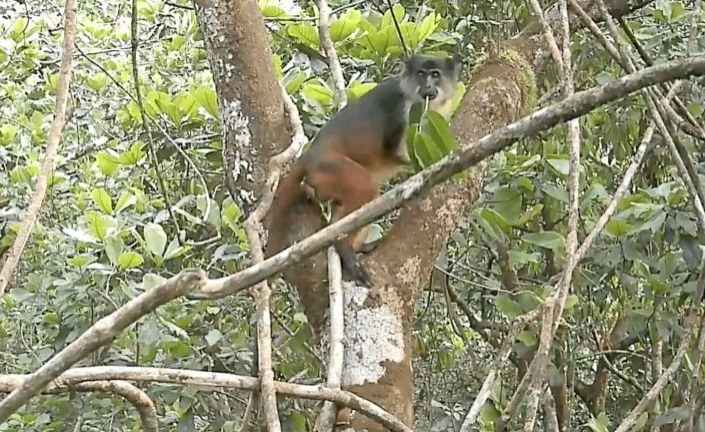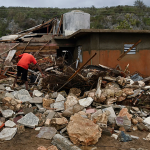Even in the most adverse environments, where pollution, conflict, and neglect seem to have written nature’s fate, local conservation work can deliver results. The story of the Niger Delta Red Colobus monkey in Nigeria’s Bayelsa State proves it.
In 1993, scientists made a remarkable identification in southern Nigeria: a new species of monkey, the Niger Delta Red Colobus (Piliocolobus epieni). For a primate in Africa, it was a late arrival to science. But this little-known primate seemed to have appeared in our awareness just as it was slipping away.
The campaign to save it demonstrated that through community-based action and smart, targeted collaboration, small wins become possible, and in places like Nigeria’s Niger Delta, small wins are monumental. They show that hope and hard work can save a species – not by providing perfect conditions but through persistence.
The Niger Delta Red Colobus has symbolized the biodiversity crisis in one of the world’s most polluted and politically unstable landscapes The Delta area is marked by oil spills, logging, and hunting. Since its identification in 1993, the Niger Delta Red Colobus lost 95% of its population, and its habitat range collapsed to a single surviving forest block in Apoi Creek. With fewer than 500 individuals remaining in the wild, there was little hope that the species could survive.
Refusing to surrender to impossible odds, the local community took on a battle that few believed could be won. In a landscape dominated by oil giants, pollution, and decades of neglect, they became the unlikely defenders of one of Earth’s rarest primates. Through sheer determination and smart, fast-moving action, they secured nearly 2,500 acres of critical habitat, safeguarding a key portion of Apoi Creek and nearly the entire remaining Niger Delta Red Colobus population.
A lifeline for a monkey is a lifeline for a community
The creation of the new conservation area is more than lines on a map. It turns guardianship of the forest into a source of pride and income.
Environmental degradation endangers both people and wildlife. Built on community leadership, the conservation area will create real jobs for local residents – as rangers, monitors, field assistants, and conservation educators.
Beyond protecting the last remaining Niger Delta Red Colobus population, the area will safeguard mangrove and marsh forests, ensure clean waterways, and sustain the natural systems that local families rely on every day.
Most importantly, the conservation area places long-term stewardship of the land and water in the hands of the people who call this place home, ensuring that the fight to protect Apoi Creek Forest endures for generations.
We know that when communities lead, conservation wins. This summer, at the International Primatological Society (IPS) congress, the Niger Delta Red Colobus was voted out of the biennial Top 25 most endangered primate list.
The removal of the Niger Delta Red Colobus from the list of the world’s most endangered primates should be celebrated, not because the danger has passed, but because it proves that determination pays off.
It’s important to be clear: “off the list” does not mean “out of danger.” The Niger Delta Red Colobus remains “Critically Endangered”. But the fact that it no longer ranks among the top 25 most imperiled primates is cause for cautious optimism. This small step is evidence that conservation, when driven by communities and backed by science, can work even in discouragingly tough conditions.
Local guardians of the Apoi Creek forests have fought to protect what remains of their forests. Their commitment has allowed a fragile population to stabilize against incredible odds. Conservationists have brought global attention, mobilized research, and placed the species squarely on the international agenda. Importantly. The community’s success, and the support of global conservationists, sends a message: success is possible, even in places written off as hopeless.
The Niger Delta has long been regarded as an environmental sacrifice zone. Yet here, amid oil-stained waterways and fractured governance, a rare monkey has managed to hold on.
We should celebrate this milestone – not as the end of the story, but as proof that conservation victories are possible when a resilient community organizes to protect its interests. Now it’s up to the rest of us to make sure the survival of the monkey and the people who are protecting it is more than a temporary reprieve.
Rachel Ikemeh is Director of the SW/Niger Delta Forest Project. James Deutsch is CEO of Rainforest Trust.

















